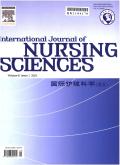护生翻转健康评估课程学习期望的质性研究
IF 3.1
3区 医学
Q1 NURSING
引用次数: 0
摘要
目的探讨本科护生对翻转健康评估课程的学习期望。方法本描述性定性研究在福建省福州市一所医科大学进行。基于期望确认理论的核心维度(期望来源、期望内容、期望重要性)设计访谈提纲。在2022年6月至7月期间,对32名完成一年级基础医学课程并即将参加翻转健康评估课程的护理本科二年级学生进行访谈。访谈资料采用定性内容分析法进行分析。结果确定了5个主要主题和13个次要主题。主题1是期望来源——从过去经验中感知到的学习困难,包括四个子主题:自主学习能力不足、学习方法困惑、学习投入不足和职业认同感低。主题二为知识与资讯期望,包括三个子主题:提升专业能力的知识、提升学术竞争力的知识和提升自我效能感的知识。主题3包含逻辑期望,并包括两个子主题:灵活的教学方法和有效的教学工具。主题4,快乐期望,包括两个子主题:生动的教学风格和多样化的教学评价。主题5为专业价值期望,包括教师负责任的职业态度和温柔的情感支持两个子主题。结论学生的学习期望源于对学习困难的感知,如学习自主性和参与性不足、学习方法混乱、缺乏职业认同等。他们对翻转的健康评估课程表现出不同的学习期望,包括知识和信息、逻辑、快乐和专业价值期望。本文章由计算机程序翻译,如有差异,请以英文原文为准。
The learning expectations of undergraduate nursing students for the flipped Health Assessment course: A qualitative study
Objective
This study aimed to investigate the learning expectations of undergraduate nursing students regarding the flipped Health Assessment course.
Methods
This descriptive, qualitative study was conducted at a medical university in Fuzhou, Fujian Province, China. An interview outline was designed based on the core dimensions of Expectation Confirmation Theory (expectation sources, expectation content, and expectation importance). Thirty second-year undergraduate nursing students who had completed first-year basic medical courses and were about to take the flipped Health Assessment course were interviewed between June and July 2022. Interview data were analyzed using qualitative content analysis.
Results
Five major themes and thirteen subthemes were identified. Theme 1 was expectation sources—perceived learning difficulties from past experiences, which included four subthemes: insufficient autonomous learning ability, confusion regarding learning methods, insufficient engagement in learning, and low professional identity. Theme 2 included knowledge and information expectations, which comprised three subthemes: knowledge to improve professional competence, knowledge to enhance academic competitiveness, and knowledge to boost self-efficacy. Theme 3 comprised logical expectations and included two subthemes: flexible teaching methods and efficient instructional tools. Theme 4, pleasure expectations, included two subthemes: vivid teaching styles and diversified teaching evaluations. Theme 5 comprised professional value expectations and included two subthemes: teachers’ responsible professional attitudes and gentle emotional support.
Conclusion
Students’ learning expectations originate from perceived learning difficulties, such as insufficient learning autonomy and engagement, confusion about learning methods, and a lack of professional identity. They showed various learning expectations for the flipped Health Assessment course, including knowledge and information, logic, pleasure, and professional value expectations.
求助全文
通过发布文献求助,成功后即可免费获取论文全文。
去求助
来源期刊

International Journal of Nursing Sciences
Nursing-Nursing (all)
CiteScore
6.10
自引率
2.60%
发文量
408
审稿时长
25 days
期刊介绍:
This journal aims to promote excellence in nursing and health care through the dissemination of the latest, evidence-based, peer-reviewed clinical information and original research, providing an international platform for exchanging knowledge, research findings and nursing practice experience. This journal covers a wide range of nursing topics such as advanced nursing practice, bio-psychosocial issues related to health, cultural perspectives, lifestyle change as a component of health promotion, chronic disease, including end-of-life care, family care giving. IJNSS publishes four issues per year in Jan/Apr/Jul/Oct. IJNSS intended readership includes practicing nurses in all spheres and at all levels who are committed to advancing practice and professional development on the basis of new knowledge and evidence; managers and senior members of the nursing; nurse educators and nursing students etc. IJNSS seeks to enrich insight into clinical need and the implications for nursing intervention and models of service delivery. Contributions are welcomed from other health professions on issues that have a direct impact on nursing practice.
 求助内容:
求助内容: 应助结果提醒方式:
应助结果提醒方式:


